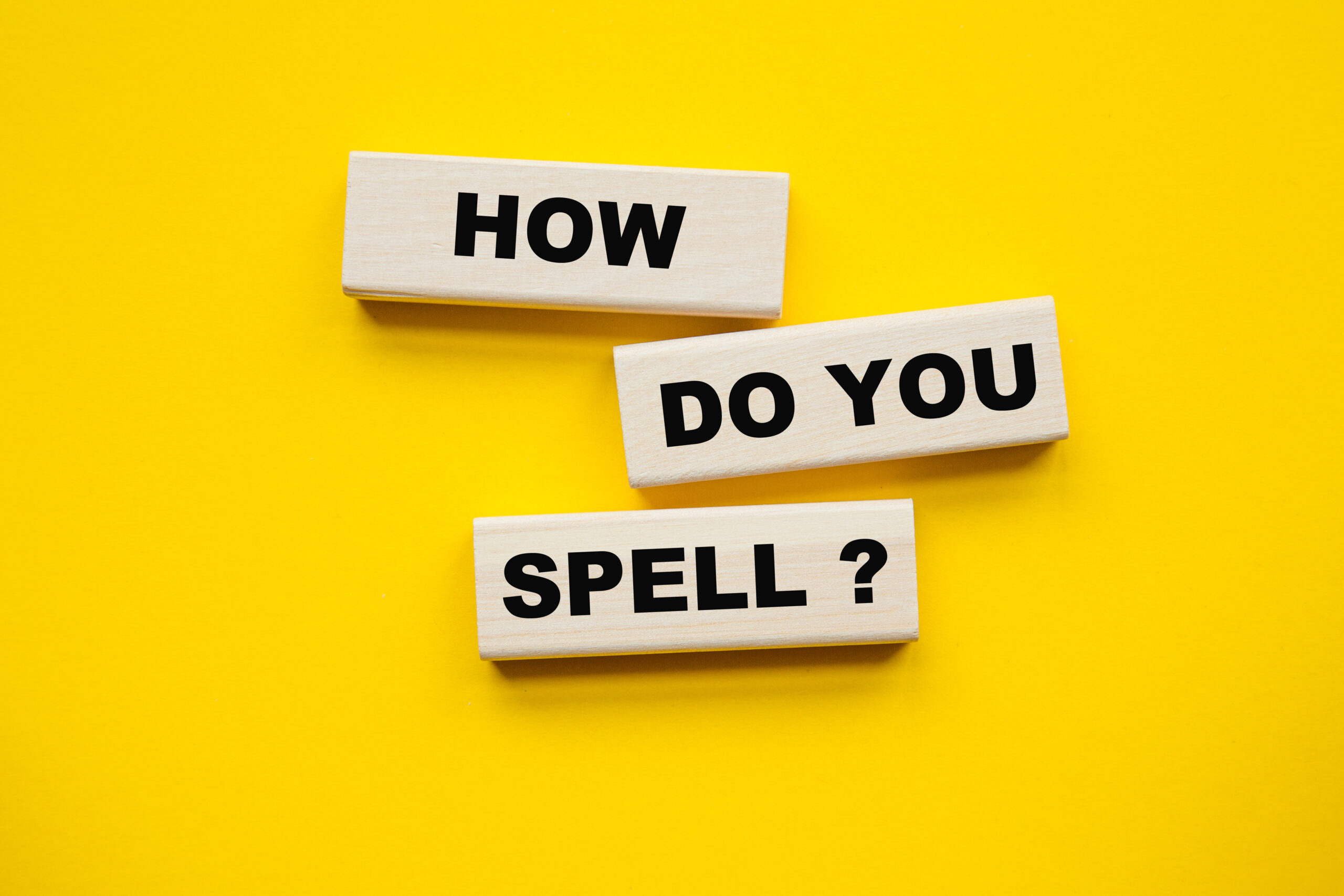
These days, when you mention the term, “Spelling Bee,” many avid online gamers think about the New York Times daily challenge of the same name. Their “Spelling Bee” game was developed by Frank Longo for the Times back in 2014 from a suggestion by “puzzle master” Will Shortz. Millions of game enthusiasts play it every morning.
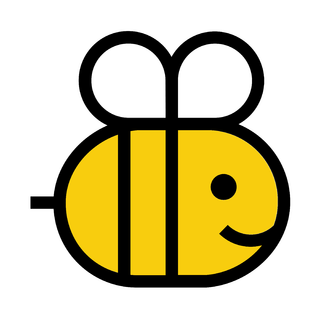
I should know – I’m married to one of them who is actually part of a group that plays together.
It’s a wildly successful game, now packaged with “Wordle” and “Connections” on the Times’ s subscription platform aptly named “Games.” The Times does not release revenue data for its subscription offers, but the combination of “Cooking,” “Games,” and related offerings has accounted for robust gains in recent years.
And perhaps another unforeseen benefit of these games is that we may be becoming better spellers as a result of playing them. And apparently, we’re going to need to up our spelling skills if we hope to have success locating brands on the web and in app stores.
A recent AdWeek story by Robert Klara provided lots of examples of brands that confused their customers with odd spelling of names. In a story aptly titled “Proud of your Brand’s Offbeat Spelling? Maybe You’d Better Check the Dictionary,” he makes the case that a hard-to-spell brand can lose out to businesses in an ecommerce search.
A study commissioned by digital wholesale platform Joor (wait…what?) revealed even well-known brands get caught up by spelling errors by customers. Tommy Hilfiger and Louie Vuitton are regularly botched by those who know and love these designers.
and Louie Vuitton are regularly botched by those who know and love these designers.
And Joor reports the most misspelled brand name is Adidas, often spelled “Addidas” or Adias” by confused customers. In Adidas’ case, Joor reports 556,000 errors per month. And those mistakes add up, in lost business and brand weakness.
Sometimes brands just get too clever for their own good by coming up with a name that has unusual spelling. And as Klara points out, the need to secure domain names often pushes companies to seek out odd, alternative spellings to common words.
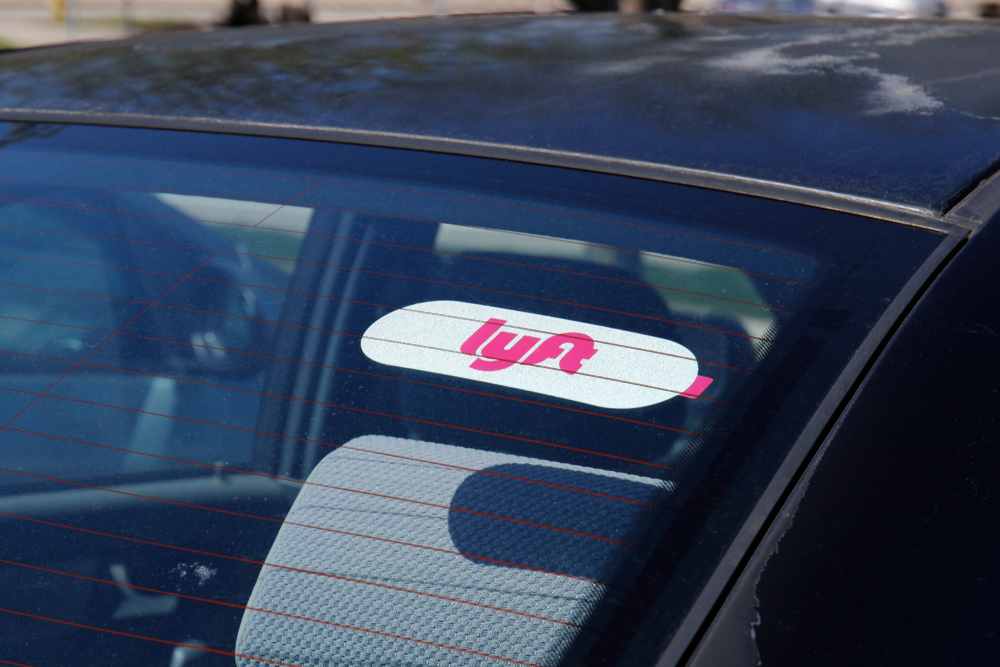 Like Lyft or Blu-Ray, Tumblr and Flickr, all with the intentional dropping of vowels or substituting odd letters. That may help them stand out, but it doesn’t make them any easier to spell.
Like Lyft or Blu-Ray, Tumblr and Flickr, all with the intentional dropping of vowels or substituting odd letters. That may help them stand out, but it doesn’t make them any easier to spell.
Then there are the names that don’t exist – they aren’t actual words but are used as brands.
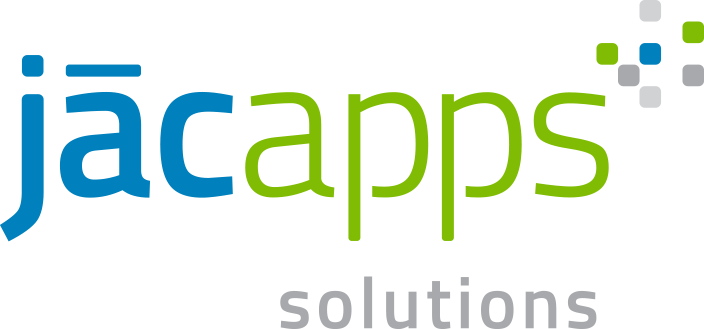 We’ve seen how that confusion both confuses spellers and those who try to announce the company with our own jacapps. I originally chose the name as a connection between Jacobs and apps, hopefully giving our fledgling app company more immediate familiarity. But the mangled mispronunciations over the years have convinced me I might have been guilty of being too clever by half.
We’ve seen how that confusion both confuses spellers and those who try to announce the company with our own jacapps. I originally chose the name as a connection between Jacobs and apps, hopefully giving our fledgling app company more immediate familiarity. But the mangled mispronunciations over the years have convinced me I might have been guilty of being too clever by half.
Rampant JACK-apps spellings even led developer Ben Levy to create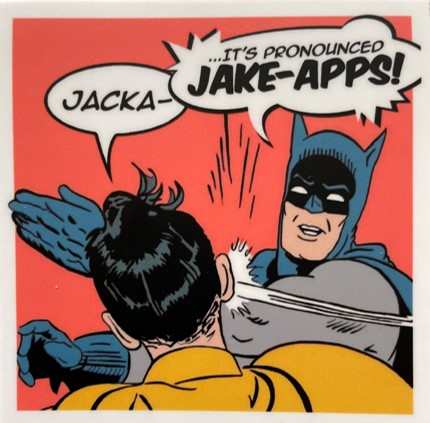 this clarifying cartoon. I’m not sure it worked, but the fact is was compelled to do it tells you something about staff frustration with the “over-creative” brand name.
this clarifying cartoon. I’m not sure it worked, but the fact is was compelled to do it tells you something about staff frustration with the “over-creative” brand name.
At one point, Ben also coined the phrase, “Jacapps rhymes with MAKE APPS.” I’m not sure that one worked either.
But until I read Klara’s article, I never thought about whether consumers would struggle with spelling it. Hmm…
A real life example is Audacy, a word play on “audio.” Early on in the new brand’s life, the brand name was often spelled out when read by a host or in a piece of production. That’s an indicator that consumers were having trouble finding it and that it needed clarification, neither a good thing in a PPM world or when consumers can’t be bothered by having to think up the correct spelling.
The good news for Audacy is that many misspellings show the corrected link or path in most browsers and app stores. But the act of scrolling or looking at the alternatives serves as another “hoop” for consumers as they search for what they’re looking for.
Are they spelling it correctly now? And do spelling clarifications still need to be give on the air? While in Canada for Radio Days North America, I had dinner with a couple of regional broadcasters, mostly unfamiliar with American radio companies.
When the discussion turned to the leading broadcasters, the Audacy name came up, and one of my Canadian guests suggested it was an odd name. I asked her to spell it, and got the “Odyssey” spelling as her answer.
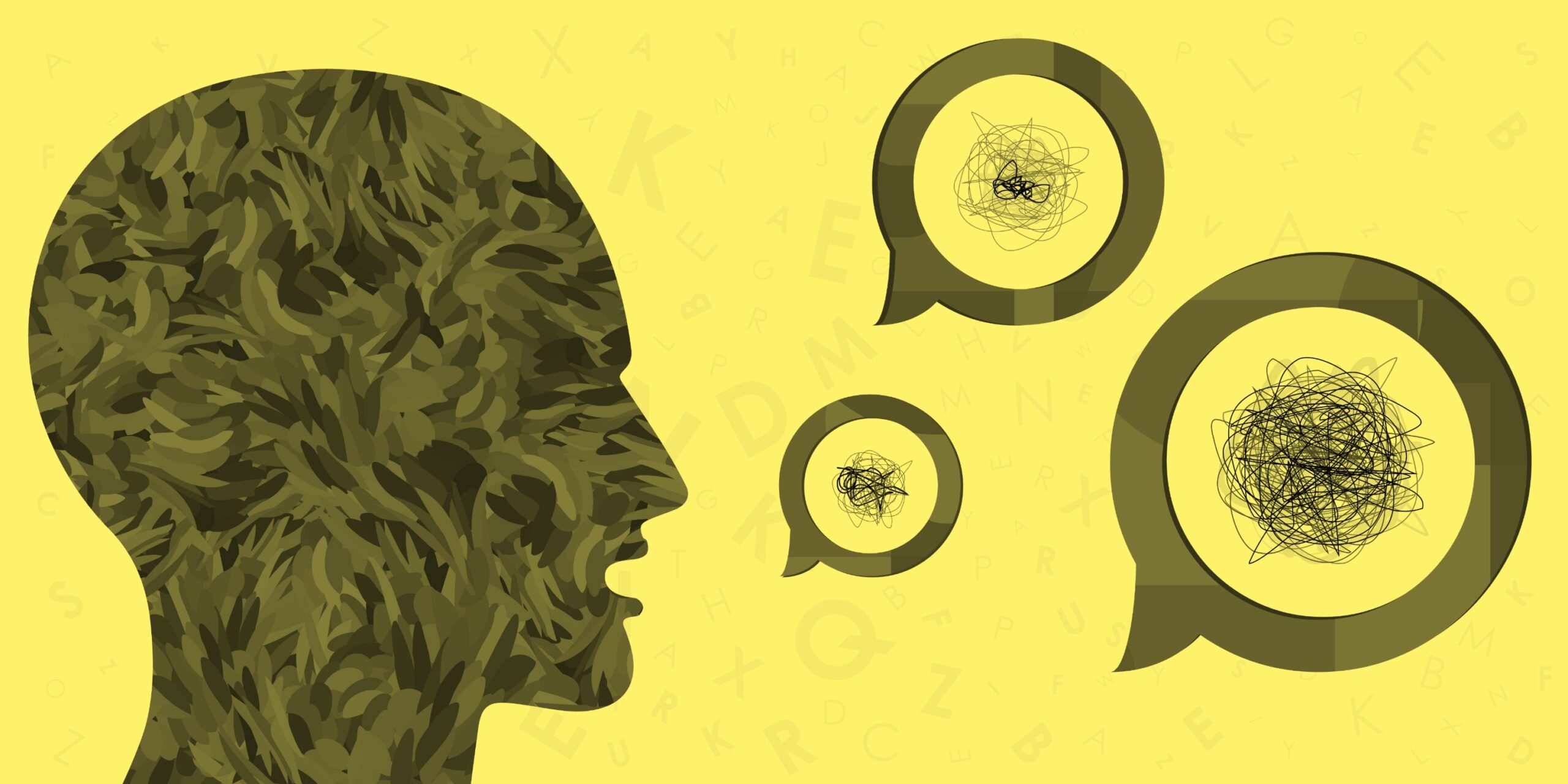 Plugging the name into a search engine usually provides the correct pronunciation, but who’s going to realistically go to the trouble? And then there’s howdoIprounce.com which got Audacy right, including the recording.
Plugging the name into a search engine usually provides the correct pronunciation, but who’s going to realistically go to the trouble? And then there’s howdoIprounce.com which got Audacy right, including the recording.
As a researcher, of course, these problems are almost always solved in the field. In this case, a curious marketer could schedule simple one-on-one interviews with consumers, asking them to spell any number of real or fictitious companies. You learn in a hurry if you’ve got a clarify issue on your hands. Like distributing a proposed new logo among the staff for feedback, it’s not foolproof but it does give you a quick sense if you’re about to create more confusion with new look or new name.
The good news for jacapps is that we survived whatever initial confusion was created. The company celebrates its 15th birthday next month, none the worse for wear. But I still grimace when I’m introduced as a speaker or presenter, and the company is part of my bio and they totally botch the name.
Of course, these days, we might want to simply turn to an AI engine like ChatGPT to dream up a new name for an app, radio, or media company. Aside from the legalities, letting the robots do the dirty work might be a good first step.
We live in a world of brands where clarity matters, especially when it comes to spelling/remembering a new brand name. 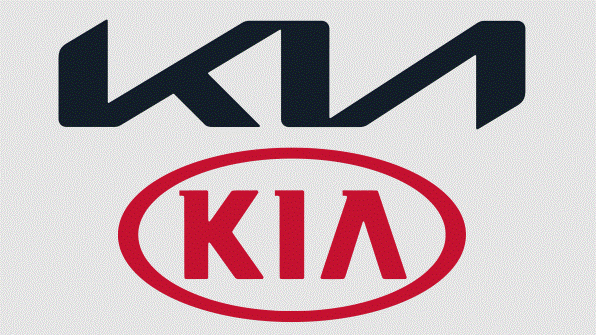
Of course, there’s also the visual aspect of logos, where a mistake can lead to even more confusion and angst. Right, KIA?
This might be a good afternoon to test drive a new KN in which I can listen to Audacy.com or download a jacapps app of my favorite station.
Yeesh.
- Media And Technology In 2025: Believe It Or Not! - April 18, 2025
- In Radio, You Just Never Know - April 17, 2025
- The Secret To Making A Great Podcast (And Great Radio) - April 16, 2025




I still get a bit flummoxed with “Audacy”, just because the name is too close to two audio editing tools: Orban’s “Audicy” and the free “Audacity” software app.
I tend to want to write one or the other when I actually mean the corporate name.
So, yeah…
I’ve heard this before, Alan. See Brian Walker’s comment. I appreciate yours.
I wonder how many people discovered the outstanding free audio editor Audacity thanks to Audacy?
I’m not surprised that Kia somewhat obscured their KIA logo considering the unfortunate association by many with the military acronym “Killed in Action.” At least the new logo doesn’t reinforce that association. It’s not so different from the Hyundai logo seeming like a twist on the Honda logo. Perhaps they’re more comfortatable to those more accustomed to the calligraphy of Asian languages.
Radio stations have sometimes been very clever getting call letters to reflect dial positions or positioning statements. Sometimes they’ve been “too clever by half.” Then there are all the “X”, “Q”, and “Z” stations. Are those letters really that effective for people outside of radio?
Good observations all, Brian. And you’re right about the call letters. Some stick and others are so unmemorable.
I probably should point out that my Albuquerque flagship station uses the call letters KRKE prominently. This is a deliberate decision between the owner and myself, because those calls belonged to one of the heritage top-40s in the market “back in the day”.
Besides, if you try to pronounce them as a word, it comes out “kirky” … as in Albu-kirky.
Of course, it is well-known that in market #70 about 75% of the diary entries are by frequency anyway (yeah, we use the exact dial position prominently, too).
Hyundai might be the prime example of a major brand with pronunciation issues: The root word itself in Korean is often now spelled differently, under newer romanization schemes. But, with Hyundai still used as the brand’s spelling, the pronunciation has varied a lot in various countries over the years–with the UK division recently changing its preferred pronunciation…
https://www.timeslive.co.za/motoring/news/2022-12-28-watch–new-advert-clarifies-pronunciation-of-hyundai-name
True story time, about Audacy.
When they first changed the name from Entercom, they had a standard practice to include the phrase “and at audacy.com” in the TOH legal ID.
A friend who knows I am in radio who listens to KTWV/The Wave here in L.A. asked me why, when she put that in her browser, she landed at a travel agency. Yep … “odyssey.com” belonged to a small vacation booking site at the time.
Ever since then, I have presumed David Field has forgotten that radio is an aural medium.
I saw this coming decades ago, when the Sci-Fi Channel on cable changed its name to “SyFy” just so they could trademark it. (I’ve been deliberately mispronouncing it as “siffie” ever since.)
At least no one can misspell “The Eighties Channel” or “KRKE”.
Many years ago we were marketing our radio station on TV and in Billboards by the call letters. Back then our market was a diary market-so it made sense. However by design we were promoting the station on the air with a different name. The calls never surfaced but once an hour. In 2023 a very prominent station just redesigned its logo -using the calls (and frequently) as opposed to its well-known (for 40 some-odd years) name. Luckily the calls almost spell out the station’s name..and it probably won’t affect the station’s prominence -as outside marketing is minimal at best. But sometimes you have to wonder if the marketing department ever talks to programming. The rocket scientist who came up with Entercom’s new name may not have put the new moniker to any kind of test (after all who’s got research money these days?). In 2023 however -as you pointed out in the KIA example, graphic artists have the luxury of crafting logos (and spelling) that might make sense owing to the day, the season or a human. Google -however you spell it-always gets it right, even on its 25th birthday!
Google does get it, right. And I love how they adapt their brand to what’s going on. MTV did lots of the same brand morphing with their iconic name/logo, which was spot-on BTW.
After test-driving that new KN while listening to Audacy on your downloaded jacapps app, you may want to kick back, relax and enjoy a pint of Hagen-Dazz, er, Haggen-Dazs, er, Haggan-Dasz, er, ICE CREAM! (True story. I had to look it up to see how it’s spelled to make sure I was misspelling it. I needn’t have worried. I never would have gotten the correct spelling: “Haagen-Dazs.”) (And that’s assuming I’d even know how to put an umlaut (which I also had to look up) over the first “A.”) Sheesh, Fred, thanks for the extra homework today!
To be fair, the spelling (especially when it comes to the umlaut) was made-up and isn’t authentically Danish…
https://en.wiktionary.org/wiki/Häagen-Dazs
My personal favorite has the official pronunciation of Viacom over the years: After becoming its owner, Sumner Redstone himself had that changed back (from “vee-ah-com” to the apparently original “vy-ah-com”)–which might’ve explained the “wigga wigga”-era ID’s often having a VO. However, the official change came after the mid-’80s, Canadian-produced revival of Split Second started–which was co-produced and syndicated by Viacom, and has been rerun off-and-on since. There, the main production credit (as voiced by Sandy Hoyt) was: “Split Second is a Stefan Hatos/Monty Hall production–in association with…Viacom” (cue the metallic, CGI “V of doom” ID), but with the pre-Redstone pronunciation.
This is getting complicated, David! Thanks for engaging with this post.
Hubris. A lot of office people are out of touch with the creative side of things, or simply do not want to pay for expertise. Their default is ‘how hard can it be?’
That thinking leads to a lot of poorly thought out ideas and a lack of respect for talent. Good leadership comes from valuing input, not ignoring it.
In the search for something clever, unique or able to be trademarked, a lot of the basics get ignored. Like legibility, easily recognized or remembered; things the best branding manages to do.
I’m surprised how little creativity goes into what is essentially a creative medium. And has no one realized that using the word ‘Hits’ in your branding automatically gives your detractors opportunity to add the ‘S’ in front of it?
On big stuff, in particular – like the name of the freakin’ company – you’ve got to take the time and go through the process. Pronunciation, spelling, domain name, apps, Alexa/Google Home commands, other organizations with similar names. And oh yeah, can e make it look good and attentnion-getting. As I noted in the blog, the original development of the jacapps brands was too quick, and we missed some of these key steps. TY for the comment.